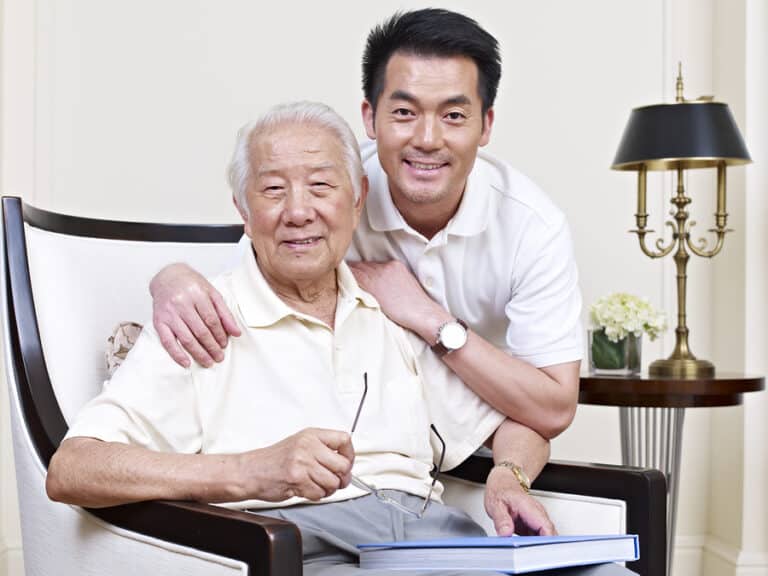Even for people who love being a caregiver to an older family member, circumstances sometimes change and make it impossible to continue in the role. Other times, being a caregiver can take such a toll on physical and emotional health that it is in the best interest of the caregiver and the person they provide care for to move on.

No matter the reason, when you know it’s time for you to stop being a caregiver, it can be difficult. Not only is there the emotional challenge of making the choice to stop, but there is also the practical matter of transitioning the older adult to other care.
Below are some tips for making the change.
Know that Self-Compassion Is a Valid Choice
First, if you’re beating yourself up for even considering leaving the role of caregiver, please give yourself a break. It doesn’t make you weak or equate to self-pity. Choosing to do what is right for you doesn’t make you selfish. Being stuck in a role that no longer suits you can make you bitter and cause you to lash out at others, including the person you are taking care of. That’s not fair to anyone. And, stepping away from being a caregiver doesn’t have to mean you’re cutting the older adult out of your life. It just means changing the way you spend time together. It can let you focus more on your relationship instead of caregiver tasks.
Think of the Transition as a Relay Race
AARP recommends thinking of being a caregiver as being a part of a relay race team. You’ve carried the baton of care for a while and now it’s someone else’s turn. The next person takes over with a fresh burst of energy and enthusiasm for the task. That can be a very positive thing for the older adult as well.
Hold a Meeting
When you’ve made the decision to stop being a caregiver, it’s important that care for the senior be set up so they aren’t left wanting. Hold a meeting with family and friends who have an interest in the person’s care. Explain why you must stop caregiving. Ask if anyone is able to take over the job or if a few people might share the responsibilities. If no one is willing, talk about what other options may be available. One option is to use home care. Home care providers can be scheduled to come to the older adult’s house as often as needed and at any time of the day. They could just fill in gaps in the senior’s care calendar where family caregivers aren’t available, or they can take over the duty full-time.
Sources: https://www.aarp.org/caregiving/life-balance/info-2019/opting-out.html
If you or an aging loved one is considering Caregiver Services in McLean VA, please contact the caring staff at Access Home Care Inc. Proudly Serving Northern Virginia and Surroundings for over 12 years. Call Us: (703) 765-9350.
“My desire to enter into nursing started when one of my older sisters died of kidney disease due to lack of care. At age 15, I decided to enter into nursing so that I could provide quality care to patients.Upon arrival in United States at 21 years of age, I enrolled in T.C Willliams School of Practical Nursing while working as a nursing assistant at a nursing home. I also worked as a part-time home health aide to take of the elderly. After completion of my practical nurse education, I worked in geriatric psychiatry unit at Dominion Hospital and Arlington Correctional facility mental health unit.
I completed Marymount University in 2001 and entered into Home Care as a field case manager.
I held that position for 2 years and as an Administrator, and for another 2 years until Access Home Care was found in 2004."
Today, Access Home Care has over 300 employees and 286 clients.
- Personal Care at Home Helps Seniors Stuck at Home Connect With Others - April 17, 2025
- Five Tips for Living with Chronic Lower Back Pain - April 3, 2025
- How 24-Hour Home Care Is Different From Other Types Of Care - March 19, 2025



